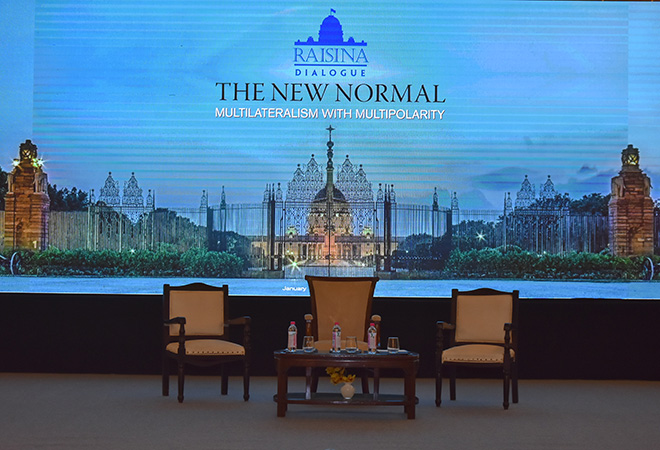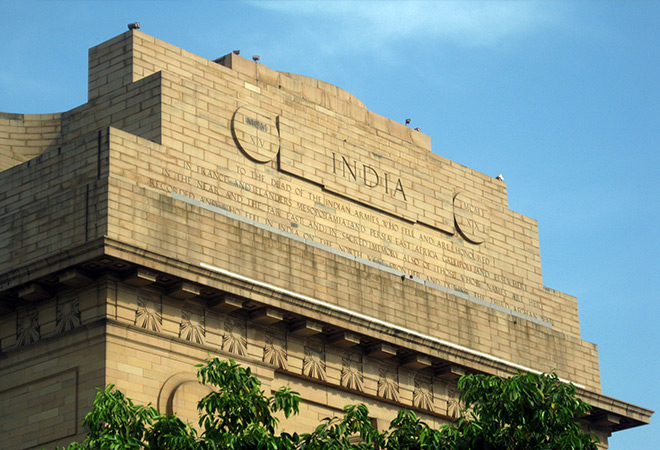Samir Saran
The keynote speeches by three world leaders at the Raisina Dialogue stood out for their pronouncements on globalisation.

In many ways, the Raisina Dialogue hosted by Observer Research Foundation and the Ministry of External Affairs, Government of India, set the tone for the year’s momentous developments in geopolitics. 2017 is yet to complete fifty days, but the events of the last few weeks will have a lasting impact on our times. The Raisina Dialogue, in particular, highlighted the clash between liberal “internationalism” and the radical movements that threaten to upend it. Keynote speeches by three leaders at Raisina stood out for their pronouncements on globalisation. The first, by India’s Prime Minister Narendra Modi, sounded a note of caution about the “gains of globalisation” being at risk. “Economic gains are no longer easy to come by,” said PM Modi, who went on to cite the “barriers to effective multilateralism.” The Prime Minister’s message was direct and simple: that globalisation needs new inheritors who can help promote the projects, regimes and norms of the 20th century. This responsibility would invariably fall on the shoulders of a class of nations that we have come to know as “emerging powers.”
“Globalisation needs new inheritors who can help promote the projects, regimes and norms of the 20th century.” — Narendra Modi
A second perspective on globalisation came from former Canadian PM Stephen Harper, who highlighted the role that religion plays in these turbulent times. Mr. Harper noted the role that Pope John Paul II, a Pole, played in providing “anti-communists in Poland effective leadership outside the country” in their struggle against the Soviet Union. PM Harper was hinting at the capacity of a religious leader whose tacit support of the Western ethos ensured resistance to entrenched nation-states. In this respect, religion returned to world politics (to destroy the Soviet Empire) in the eighties, long before the rise of the Islamic State. Can tendencies driven by religious sentiment today — whether through the rise of terrorist groups like ISIS, or through the counter-movements against migration in Europe — defeat the globalisation project driven by states?
Can tendencies driven by religious sentiment today defeat the globalisation project driven by states?
And finally, British Foreign Secretary Boris Johnson offered yet another take on globalisation, in balancing his full-throated defence of Brexit with his call for greater economic cooperation with Britain. The “selective” or “a la carte” globalisation that Secretary Johnson pushed for at the Raisina Dialogue reflects the desire of many Western states to preserve its economic benefits while assuaging “nativist” tendencies at home.
What do these three speeches at the recently concluded global conclave tell us about the world today? For one, they concede that globalisation of a certain kind has run its course. This was a globalisation spurred by Western leadership in the 20th century, promoting ideas and institutions to salvage economies that had been devastated after two great wars. The urgency and desire to create those linkages no longer exist in the trans-Atlantic universe, so this period is witnessing selective de-globalisation.
Second, the leaders’ speeches acknowledge that globalisation is a victim of its own success. In true Hegelian fashion, the “idea” has been destroyed by its “actualisation.” Globalised economies today promote the free and rapid flow of information, bringing communities, societies and peoples together. These connected networks are by no means homogenous. They are miscellaneous groupings that often have little in common, by way of political heritage or intellectual traditions. As a result, they begin to sense their respective differences quickly and conspicuously. To be sure, the world was just as polarised or opinionated before the Information Age. But digital spaces have made distances shorter, and differences sharper.
Digital spaces have made distances shorter, and differences sharper.
Third, their utterances indicated globalisation is in need of new torchbearers, who may not be able to project strength or underwrite stability in the same vein as the United States or Europe, but will preserve its normative roots regionally. These torchbearers will emerge from Asia, Africa and Latin America: they may not be connected by a lingua franca but their political systems will share a common commitment to free expression and trade. Their rise will be neither smooth nor inevitable. If disruptors today find the cost to destabilise the global system rather low, its custodians realise it is expensive to fix the mess they leave behind.
Prime Minister Modi astutely observed at the RaisinaDialogue that the dust has not yet settled on what has replaced the Cold War. Russian Parliamentarian Vyacheslav Nikonov, one of the speakers at the Dialogue, went one step further: “We may not be the number one military in the world,” he said, “but we [Russia] are not No. 2 either.” With the traditional leadership of Western powers giving way to the rise of regional powers, it is anyone’s guess if they will emerge as preservers or destroyers.
Above all, the speeches by Mr. Modi, Mr. Johnson and Mr. Harper at the Dialogue reflect their desire to couch globalisation in normative terms. The Washington Consensus was not solely about free markets, but also untrammelled expression and political dissent. The room for promoting such norms, for all the reasons mentioned above, is considerably limited today. The rise of China presents perhaps the biggest challenge to an ideas-based global order. Beijing has pursued with transactional vigour and single-minded ambition the setting up of regional financial architecture to bankroll its infrastructure projects. These initiatives place little regard for notions held sacred in the international order.
At the Dialogue, PM Modi highlighted the importance of these norms for the continued execution of the globalisation project. “Only by respecting the sovereignty of countries involved, can regional connectivity corridors fulfil their promise and avoid differences and discord,” said PM Modi.
It should be clear then that there is only one legitimate inheritor to the global liberal order of any consequence: India. New Delhi alone can pursue the expansion of regional and global economic linkages while staying true to the ideals that drive them. The Raisina Dialogue itself was an example of how a global platform can be forged in India, bringing together contradicting opinions and voices from across the world. As the steward of the process, the Prime Minister cited the Rig Veda, inviting “noble thoughts […] from all directions.” The future of the globalisation project is intimately tied to India’s modernisation and rise. There is no growth without ideas, and conversely, no innovation without prosperity. India is the world’s best shot and perhaps the last shot at achieving both in these turbulent times.
